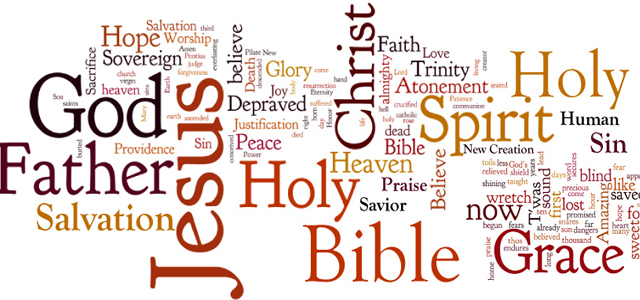The whole Bible is a story of faithful women and miraculous pregnancies.
Israel’s story begins with a promise to Abram and Sarai (later renamed Abraham and Sarah). A couple who cannot conceive are chosen by God and told that they will have a great family. Sarai/Sarah laughs at the promise. But later, when she has given birth in her grand old age, the child is named Laughter (Hebrew: Isaac) because of the astonished joy of his parents. Isaac’s mother can hardly believe her own body: and yet it’s true. She has given birth to the promise.
The next great turning point in Israel’s story is the arrival of Moses. Although Moses’ conception is not itself miraculous, his infancy is marked by a miraculous escape from the waters – an anticipation of the great miracle to come when God will rescue Israel from Egyptian slavery.
After Israel has come to the Promised Land, God raises up judges to lead and protect the people. The greatest of these judges, Samson, is the result of another miraculous pregnancy. Although she cannot conceive, Samson’s mother is visited by an angel, who tells her that she will give birth to a saviour.
After the age of the judges, the next great period in Israel’s history is the age of the prophets and kings – an age that begins with Hannah, a woman full of grief because she cannot conceive. In answer to her prayer, Hannah becomes miraculously pregnant, and her child Samuel becomes the prophet who will anoint the first kings of Israel.
Within this great history of miraculous births, it should come as no surprise to find Israel’s Messiah entering the world by means of a miraculous pregnancy. In the Gospel of Luke, the first character we meet is another faithful Israelite woman who can’t conceive: Elizabeth. Like Samson’s mother, Elizabeth is visited by an angel who promises that a child will be born.
After Elizabeth has miraculously conceived, we meet her cousin Mary. The angel tells Mary that she too will miraculously conceive, and that her child will be the fulfillment of all God’s promises to Israel. Mary responds with simple trust and joy. The joy of her Magnificat (Luke 1:46-55) is the same joy that made Abram’s wife laugh and that wiped away Hannah’s tears. Israel’s joy – the joy of God’s promise, the joy of salvation – is all summed up in the birth of a miraculous child.
Many Christians today cross their fingers when they get to the line in the Creed about the virgin birth. Some contemporary scholars suggest we’d be better off without all this mythical nonsense about a virgin birth. But the confession that Jesus Christ was born of a virgin is a way of reminding ourselves that our faith has deep roots in Israel’s story and Scriptures. If we detach Christ from the virgin birth, we risk detaching Christ from Israel.
The arrival of Jesus in the world wasn’t simply a new thing. It was the culmination of the whole great story of God’s loving faithfulness to the people of Israel. To confess that Christ was “born of the Virgin Mary” is to confess that the God of the New Testament and the God of the Old Testament are one and the same.
It is to confess that the true meaning of history is not power and empire, but promise and trust.
Ben Myers is Lecturer in Systematic Theology at United Theological College













